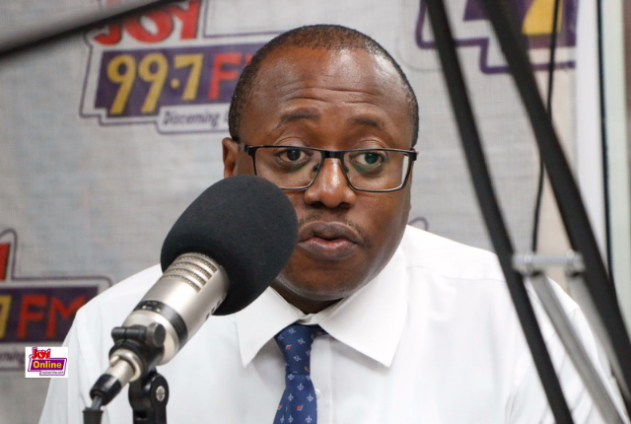The Ghana Centre for Democratic Development (CDD-Ghana) says the country could soon be plunged into a ‘choice-less’ democracy due to the monetisation of its political landscape.
The policy think-tank observed that internal party electioneering processes financed by certain individuals within the party tend to change the dynamics of a party's internal politics.
Director of Program and Policy Engagement at CDD-Ghana, Dr. Kojo Pumpuni Asante, explained that when a few rich party members give huge sums of money to finance campaigns and other party processes it skews the power dynamics away from elected officials into the hands of the rich few.
This he says is later carried on into government where only the views and interests of a handful of people, are taken into consideration and not the national populace.
He warned that vote inducement threatens the country’s democracy.
He was speaking on Luv FM ahead of a multi-stakeholder forum on a credible and peaceful upcoming election in Ghana.
“It is an existential threat. It is the one thing that is going to damage our democracy. We’re seeing changes in internal party dynamics because of monetization. More and more, the few people who have money are now able to direct everything in the party even part managers.
“So you can be elected chairman of the party, if you don’t have money in the party, you can decide whatever and nobody will mind you because the people who finance people’s campaigns and whatever are the ones that are going to make the decisions for you, and you cannot have any vibrant party that way.
“And if you cannot have vibrant parties you’re going to have bad governments because it is the same dynamics that is brought to the government, and then you have the centralization of corruption and so on that goes on. It’s a very dangerous thing.
“It’s leading to as people call it choice-less elections and choice-less democracies. It’s happened in Nigeria, it’s happened in Kenya and a whole other places because you keep recycling and just a few people choose who is going to lead the party or who is going to do this,” he explained.
He has called for the passing of legislation to regulate internal party politics as a safeguard against the political monetisation and corruption.
According to him, all internal party electioneering processes must be standardized and a cap must be placed on party financing to prevent overspending on internal campaigns.
Latest Stories
-
My Quiet Contribution to Ghana’s Fiscal Policy: The Genesis of the Communication Service Tax and more
16 minutes -
Osei Owusu Bempah calls for disciplinary clauses in GFA’s new player contract
24 minutes -
Perseus releases land to government for artisanal and small-scale mining
34 minutes -
BoG’s limited issuance of BoG bills reason behind substantial oversubscription of T-bills
45 minutes -
Ghana to end use of soldiers for unofficial guard duties
48 minutes -
Weija Gbawe MP denies resignation rumours linked to Bawumia’s flagbearer campaign
52 minutes -
Scholarship Secretariat to partner CID to roll out crime-curbing strategy
1 hour -
Scholarship Secretariat boss pays courtesy call on IGP Yohuno
1 hour -
Bond market: Activities declined marginally to GH¢2.06bn
1 hour -
Man City star Jeremy Doku acquires citizenship with Ghanaian passport
1 hour -
Water crisis hit Sakumono, residents demand urgent action
1 hour -
IMF backs removal of COVID-19 levy as new tax reforms receive high approval rate
1 hour -
Abuakwa South MP raises concern over MahamaCare’s sustainable funding
2 hours -
MahamaCare undermines NHIS – Abuakwa South MP
2 hours -
The President has Logged On… Finally!
2 hours

